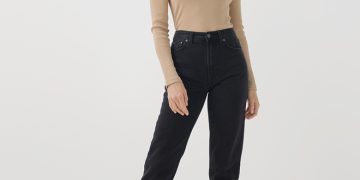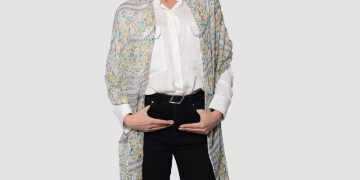Sustainable fashion has emerged as a crucial movement within the fashion industry, aiming to minimize its environmental and social impact while still delivering stylish and innovative clothing. At the forefront of this movement are eco-conscious designers who are pioneering sustainable fashion solutions and challenging traditional industry practices.
Challenges in the Fashion Industry
The fashion industry has long been criticized for its detrimental environmental footprint and exploitative labor practices. From the pollution generated by textile production to the low wages and poor working conditions in garment factories, the industry faces significant challenges in terms of sustainability and social responsibility.
Role of Eco-Conscious Designers
Eco-conscious designers play a vital role in addressing these challenges by integrating sustainability into every aspect of their design process. These designers prioritize eco-friendly materials, ethical production methods, and transparent supply chains, demonstrating that fashion can be both stylish and environmentally responsible.
Innovative Materials and Techniques
One of the key strategies employed by eco-conscious designers is the use of innovative materials and techniques that minimize waste and reduce environmental impact. From organic cotton and hemp to recycled fibers and biodegradable textiles, these designers are exploring new ways to create fashionable clothing without compromising the planet’s health.
Fashion Forward and Environmentally Friendly
Contrary to the misconception that sustainable fashion is dull or uninspired, eco-conscious designers are proving that fashion can be both forward-thinking and environmentally friendly. By combining cutting-edge design with sustainable principles, these designers are creating clothing that not only looks good but also feels good to wear.
Social Responsibility and Fair Labor Practices
In addition to environmental sustainability, eco-conscious designers are committed to social responsibility and fair labor practices. They ensure that their garments are produced under safe and ethical conditions, with fair wages and respect for workers’ rights. By supporting local communities and artisanal craftsmanship, these designers contribute to the social and economic well-being of garment workers worldwide.
Educating Consumers
Another important aspect of the work done by eco-conscious designers is educating consumers about the benefits of sustainable fashion. Through transparency and communication, these designers help consumers make informed choices about their clothing purchases, empowering them to support brands that align with their values.
Collaborations and Partnerships
Eco-conscious designers often collaborate with other designers, brands, and organizations to amplify their impact and promote sustainability on a larger scale. By working together, they can share resources, ideas, and best practices, driving positive change throughout the fashion industry.
Government Policies and Regulations
Government policies and regulations also play a crucial role in shaping the future of sustainable fashion. By implementing stricter environmental and labor standards, governments can incentivize the adoption of sustainable practices and hold fashion companies accountable for their actions.
Eco-Conscious Designers Leading the Way
Across the globe, eco-conscious designers are leading the way in sustainable fashion innovation. From Stella McCartney’s commitment to cruelty-free fashion to Mara Hoffman’s focus on eco-friendly textiles, these designers are proving that style and sustainability can go hand in hand.
The Future of Sustainable Fashion
As consumer demand for sustainable fashion continues to grow, the future looks bright for eco-conscious designers. With advancements in materials science, technology, and consumer education, sustainable fashion is poised to become the new norm in the fashion industry.
Conclusion
In conclusion, eco-conscious designers are at the forefront of the sustainable fashion movement, driving innovation and inspiring positive change in the industry. By prioritizing sustainability, ethics, and creativity, these designers are shaping the future of fashion and paving the way for a more environmentally conscious and socially responsible industry.

FAQs:
- How can I support eco-conscious designers?
You can support eco-conscious designers by purchasing their clothing, sharing their work on social media, and advocating for sustainability in the fashion industry.
- Are eco-friendly materials more expensive than conventional materials?
While eco-friendly materials may sometimes come at a higher price point due to their production processes, they often offer better quality and durability, making them a worthwhile investment in the long run.
- What are some examples of sustainable fashion practices?
Sustainable fashion practices include using organic or recycled materials, reducing waste through zero-waste design, and implementing ethical production methods such as fair labor practices and transparent supply chains.
- How can I find eco-conscious designers in my area?
You can search online for eco-conscious designers, visit local sustainable fashion markets or boutiques, and look for certifications like Fair Trade or GOTS (Global Organic Textile Standard) to identify brands that prioritize sustainability.
- What can I do to promote sustainable fashion in my community?
You can organize clothing swaps or repair workshops, support local sustainable fashion initiatives, and educate others about the importance of sustainable fashion choices in reducing environmental impact and supporting ethical practices.




